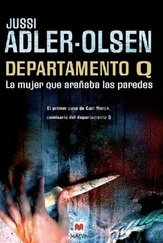The instructor is irritable, nearly always. He has taught pilots in World War II and the Korean War. He considers it part of his professional manner now to bark. A natural fighter pilot can solo after his first eight hours of instruction; after flying solo for another eight, he can just plain fly. All of us would be washouts as fighter pilots, certainly. The Jesuit, who, like the instructor, studies Chinese cooking in his spare time, tried to endear himself to the instructor with the present of a wok. The instructor was briefly pleased, but his bad temper, on the whole, is incorruptible. Not since the worst, dread days of school have I heard this electric alternation of instructions to Watch it, Watch out, Pay attention, Hurry, Listen, Keep your mind on what you’re doing, Hold it, Quit trying too hard, and, of course, Relax.
I fly solo these days, mostly in Three Nine Tango. I take off, turn left, turn left, turn left a third and fourth time, land, speed down the runway, take off, four lefts, land again, take off. That’s what we all do; it’s called touch-and-go. The reason, though, that I never practice any other thing is this: I land funny. Not roughly or dangerously, just a bit canted or askew. I am also really scared of crosswind gusts. “You don’t have to arrive ,” the instructor said, bitterly, when I must have seemed to him to concentrate too gravely, on a windy day. “You’re just supposed to land.” Back in the early days, when we would practice stalls and spins, I nearly did give up. To stall, you deliberately climb too sharply, until you feel the engine cough. The plane shivers slightly. That’s a stall. It is time to push the nose down and the throttle fully up. This process violates every natural instinct. R. D. Laing aside, it seems to be the only way to level off. Since it seems so wrong to drop a plane’s nose and accelerate, when the horizon has already vanished underneath the wings and the whole machine is clearly under strain, I used to dive a bit too soon, to get it over with. “You. Didn’t. Feel. No. Stall,” the instructor would say, with enraged precision, as though he were about to leave and slam the door. Except that in a dive at a thousand feet, of course, he can’t. “That red light was on there,” I said, pointing to a small light, which was still blinking on the panel. “It says Stall.” A long silence. “Nobody. Told. You. To. Look. At. Any. Light,” he said.
It is no longer as clear as it was why I am in this flight school. Driving from the city to green places, it is acknowledged, takes too long. Flying is faster. Jim, who would be a less unlikely pilot than I am, says he hasn’t got enough certain free hours to take it up again. There is also in my mind the memory of a poem the Speech Arts coach recited, with great feeling and the purest diction, to our high school elocution class. “Oh, I have slipped the surly bonds of earth / And danced the skies on laughter-silvered wings / And done a hundred things / You have not dreamed of. / Wheeled and soared and swung / Up, up the long, delirious burning blue,” and so on. “Put out my hand and touched,” the last line ended, “the face of God.” Well. It wasn’t Wallace Stevens. But at “touched,” each time, the Speech Arts coach’s voice broke. The poem had been written by a young Canadian pilot who fought in World War II. He crashed, unfortunately. Tino Bellardinelli, our All-State running back, was unmoved by this poem; he implacably chewed his toothpick. But another poem got to him. “There is something in the autumn that is native to my blood, / Touch of manner, hint of mood; / And my heart is like a rhyme, / With the yellow and the purple and the crimson keeping time. / The scarlet of the maples can shake me like a cry / Of bugles going by. / And my lonely spirit thrills / To see the frosty asters, like a smoke upon the hills,” and so on. And Agnes Betty Cotts, who had gone through the first eleven years of her schooling in some twilight of sexuality and inattention, became lofty, intellectual, and fierce with this: “So live, that when thy summons comes to join / The innumerable caravan which moves / To that mysterious realm, where each shall take / His chamber in the silent halls of death, / Thou go not, like the quarry-slave at night, / Scourged to his dungeon, but, sustained and soothed / By an unfaltering trust, approach thy grave / Like one who wraps the drapery of his couch / About him,” etc. The Speech Arts coach worked with such diligence and faith on thirty juniors (who had before been known to mutter, derisively, “The Brain,” when anyone so much as spoke distinctly in their midst) that all of them subsequently went to college, each with an awful favorite poem in his heart. All of us, too, stared into a profound distance and, for years, dwelled upon this problem: “For if a man should dream of heaven and, waking, find in his hand a flower as a token that he had really been there, what then? What then?”
Well, I don’t know what then. Every autumn, presumably, the scarlet of the maples still thrills Congressman Tino Bellardinelli’s lonely spirit like a cry / Of bugles going by. When Agnes Betty Cotts’ summons comes to join / The innumerable caravan which moves / To that mysterious realm, she will receive it as a nun and president of a Catholic women’s college. I work here at the newspaper. Sooner or later, though, I guess I was bound to slip the surly bonds of earth / And dance the skies on the laughter-silvered winds of Six Two Uniform or Three Nine Tango.
“Take off everything except your slip,” the nurse said. “Doctor will be with you in a moment.” Nobody under forty-five, in twenty years, had worn a slip, but nurses invariably gave this instruction. There they all are, however, the great dead men with their injunctions. Make it new. Only connect.
“Stop. Stop. Stop. Stop,” the moderator of the talk show said. They had been taping a panel. The Indo-Chinese lesbian restaurant owner, who was holding her fish-sauces cookbook, resumed a dignified, offended silence. The crisp, cold, bracing writer was drunk, and raving to the savage pundit. The French film-archivist was talking, with delight, to the Bulgarian movie personality from California, who was about to sell, in stores across the country, the product of her secret formula for face creams. “That,” said the French film-archivist, squinting through his smoke, and scattering more ashes onto his vest and trousers, “is a house of another color.”
“Horse,” the nine-year-old star of television commercials said.
“I know exactly what you mean,” said the lady critic, who had been trying to find her way into the conversation somehow. “ Exactement what you mean, Emile,” she added, patting the Frenchman’s arm. The rock musician, however, spoke at the same moment. “ Tu parles ,” he said, amiably. It was his favorite (in fact, his only) French expression. For Italians, he had “ Ecco ” and “ S’immagine ”; for Germans, “ Sowas ” and “ Unglaublich .” He had travelled widely. In this case, he said, “ Tu parles , Monsieur Blin.”
“Stop,” the moderator said again. The nine-year-old sulked.
The gentleman critic was now in his cups and muttering. Seven years ago, an obscure Southern writer by the critic’s own name had been chosen for an international colloquium on modern humor, which was held in Seoul, Korea. It had not been widely covered in the press. Certainly there had been an error. Certainly the invitation had gone to the wrong — the obscure and unintended — Herbert Course. No publication, however, had called attention to the matter. In the critic’s mind, the outrage had assumed immense proportions, as a parable of the monstrous in contemporary life. His divorce, his conversion to the politics and the literature of alienation had been but one result.
Читать дальше












